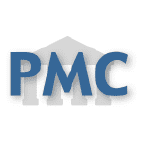ecstatichamster
Member
- Joined
- Nov 21, 2015
- Messages
- 10,504
Dr. Peat has speculated about this, and Haidut has also.
This is a review study on "supra physiological" dosages of testosterone to treat prostate cancer.
Supraphysiologic Testosterone Therapy in the Treatment of Prostate Cancer: Models, Mechanisms and Questions
Abstract
:
"Since Huggins defined the androgen-sensitive nature of prostate cancer (PCa), suppression of systemic testosterone (T) has remained the most effective initial therapy for advanced disease although progression inevitably occurs. From the inception of clinical efforts to suppress androgen receptor (AR) signaling by reducing AR ligands, it was also recognized that administration of T in men with castration-resistant prostate cancer (CRPC) could result in substantial clinical responses."
This is not true. Standard of care is that testosterone causes prostate cancer growth, despite the evidence that this is false.
Data from preclinical models have reproducibly shown biphasic responses to T administration, with proliferation at low androgen concentrations and growth inhibition at supraphysiological T concentrations. Many questions regarding the biphasic response of PCa to androgen treatment remain, primarily regarding the mechanisms driving these responses and how best to exploit the biphasic phenomenon clinically. Here we review the preclinical and clinical data on high dose androgen growth repression and discuss cellular pathways and mechanisms likely to be involved in mediating this response. Although meaningful clinical responses have now been observed in men with PCa treated with high dose T, not all men respond, leading to questions regarding which tumor characteristics promote response or resistance, and highlighting the need for studies designed to determine the molecular mechanism(s) driving these responses and identify predictive biomarkers
Go to your doctor and ask for T to treat your prostate cancer. Good luck with that.
This is a review study on "supra physiological" dosages of testosterone to treat prostate cancer.
Supraphysiologic Testosterone Therapy in the Treatment of Prostate Cancer: Models, Mechanisms and Questions
Abstract
:
"Since Huggins defined the androgen-sensitive nature of prostate cancer (PCa), suppression of systemic testosterone (T) has remained the most effective initial therapy for advanced disease although progression inevitably occurs. From the inception of clinical efforts to suppress androgen receptor (AR) signaling by reducing AR ligands, it was also recognized that administration of T in men with castration-resistant prostate cancer (CRPC) could result in substantial clinical responses."
This is not true. Standard of care is that testosterone causes prostate cancer growth, despite the evidence that this is false.
Data from preclinical models have reproducibly shown biphasic responses to T administration, with proliferation at low androgen concentrations and growth inhibition at supraphysiological T concentrations. Many questions regarding the biphasic response of PCa to androgen treatment remain, primarily regarding the mechanisms driving these responses and how best to exploit the biphasic phenomenon clinically. Here we review the preclinical and clinical data on high dose androgen growth repression and discuss cellular pathways and mechanisms likely to be involved in mediating this response. Although meaningful clinical responses have now been observed in men with PCa treated with high dose T, not all men respond, leading to questions regarding which tumor characteristics promote response or resistance, and highlighting the need for studies designed to determine the molecular mechanism(s) driving these responses and identify predictive biomarkers
Go to your doctor and ask for T to treat your prostate cancer. Good luck with that.

